Audio
The latest Audio breaking news, comment, reviews and features from the experts at T3
Explore Audio
-

This new turntable proves that size actually does matter
The Pro-Ject Debut Reference 10 features an enlarged tonearm – and a lot more besides!
By Sam Cross Published
-

Samsung Galaxy Buds 4 Pro look to be a solid companion for the forthcoming Galaxy S26 Ultra
There's a big design change for the new buds
By Sam Cross Published
-

Want fancy new IEMs? The best 3 in-ear monitors, picked by an A/V expert
Who said wired was out? In-ear monitors, or IEMs, offer tremendous sound quality – here are 3 to consider over wireless earbuds
By Simon Lucas Published
-

Sony WF-1000XM6 vs WF-1000XM5: Which should you buy?
Sony's brand-new earbuds are here – are they better than the old ones?
By Max Freeman-Mills Published
-

Sony WF-1000XM6 review: still top of the earbuds table?
Sony's new flagship earbuds are an odd twist on the in-ear tale
By Max Freeman-Mills Published
-

Sony unveils WF-1000XM6 earbuds – and there's one pretty huge surprise
That case sure didn't get smaller
By Max Freeman-Mills Published
-

"An unwavering belief that sound should feel as honest as it is powerful" : these Norwegian speakers promise to sound as good as they look
The Arendal 1610 series brings sumptuous design to a lower price point
By Sam Cross Published
-

This British brand just made cinema-grade surround sound even more affordable
Majority Audio is ready to turn your home into a cinema for less than you'd think
By Sam Cross Published
-
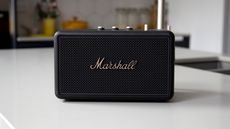
Marshall Kilburn III review: this Bluetooth speaker rocks
Marshall's mid-sized speaker puts retro design and sound quality at the fore
By Chris Hall Published
-

Sony WF-1000XM6 teased with launch date – what do the AirPods Pro rivals have in store?
Sony has just leaked its own new earbuds, and this is everything we can gleam from it
By Sam Cross Published
-

You're not seeing things – JLab's new Bluetooth speakers really can be used as bonkers headphones
Just maybe stick them around your neck rather than on your ears
By Britta O'Boyle Published
-

Meze Audio Poet review: planar magnetic masterpiece
Open-back planar magnetic headphones with little to compare
By Simon Lucas Published
-
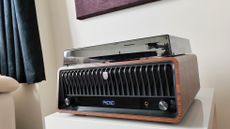
Philips The Tina review: Back to the future in style
Philips has created an all-in-one music centre that pays homage to the sound systems of yesteryear
By Steve May Published
-

Want a fancy new wireless speaker? The 3 best models, no hi-fi separates needed – as picked by an A/V expert
"Another class entirely": These 3 wireless speakers are simply stupendous
By Simon Lucas Published
-
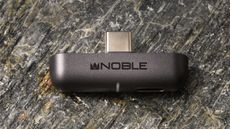
Give any phone, laptop or tablet an audio upgrade with this affordable, unmissable accessory
The Noble Audio Sceptre allows you to unlock wireless high-resolution audio on practically anything
By Sam Cross Published
-

Sennheiser HDB 630 review: Actual audiophile quality – without the wires
Has Sennheiser worked out a way to combine audiophile performance with wireless convenience?
By Simon Lucas Published
-

Meze Audio 99 Classics (2nd Gen) review: These wired headphones are simply wondrous
Want some fancy yet affordable wired headphones? These are the real deal
By Simon Lucas Published
-

Your iPod never looked this good – Astell&Kern's flagship audio player gets a classy, copper makeover
It launches alongside a new case for your luxury audio goodies
By Sam Cross Published
-

Want a fancy new CD Player? The best 3 new models, picked by an A/V expert
It's not just vinyl, CDs are making a comeback too – and there are some great modern players to get the best from your music collection
By Simon Lucas Published
-
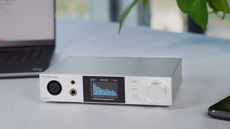
Topping’s headphone DAC now makes your headphones sound less like headphones – and that’s a good thing
Topping's free update is designed to deliver a more speaker-like audio experience
By Carrie Marshall Published
-
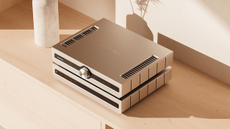
Roksan's dual elite amps promise 'breathtaking musicality' and advanced features
Roksan's gorgeous and high-end Caspian Series gets two new components
By Carrie Marshall Published
-

Ruark Audio is celebrating its 40th birthday with this exquisite, all-in-one luxury audio solution
The anniversary model is Made in England, too
By Sam Cross Published
-
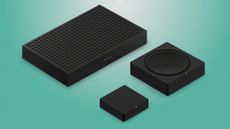
Sonos just stealth launched a new multi-room streaming product
Designed for custom installs and big home builds, the Sonos Amp Multi could control your whole home audio
By Rik Henderson Published
-
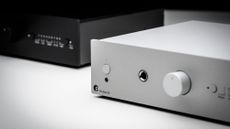
Pro-Ject launches the perfect all-in-one box for your audio needs
The Pro-Ject Pre Box S3 can tie in audio from your TV, turntable and more
By Sam Cross Published
-
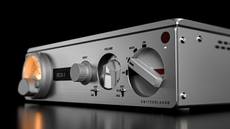
Nagra’s elite preamp brings today’s tech to its incredible hi-fi heritage
Nagra's new pre-amp is the first in a new series of very high-end hi-fi components
By Carrie Marshall Published
-

The Apple HomePod Touch could finally release "as soon as this spring" – according to inside sources
Apple's much-rumoured smart speaker with a screen might make its appearance at last
By Britta O'Boyle Published
-
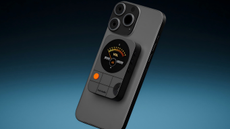
This Hi-Res headphone amp is made for your MagSafe mobile – Fosi Audio keeping things neat and tidy
Dump the dongle – Fosi's new amp/DAC is made for iPhones and attaches via magnets
By Carrie Marshall Published
-

Majority Move has Bose in its Bluetooth speaker sights, but with much more attractive prices
These speakers sound like unmissable value
By Sam Cross Published
-

Putting the wood into 'Woodstock', this premium speaker range is looking mighty Fyne
Fyne's latest speakers are ideal for listening to Roy Wood, Woody Guthrie and Paul Oak-enfold
By Carrie Marshall Published
